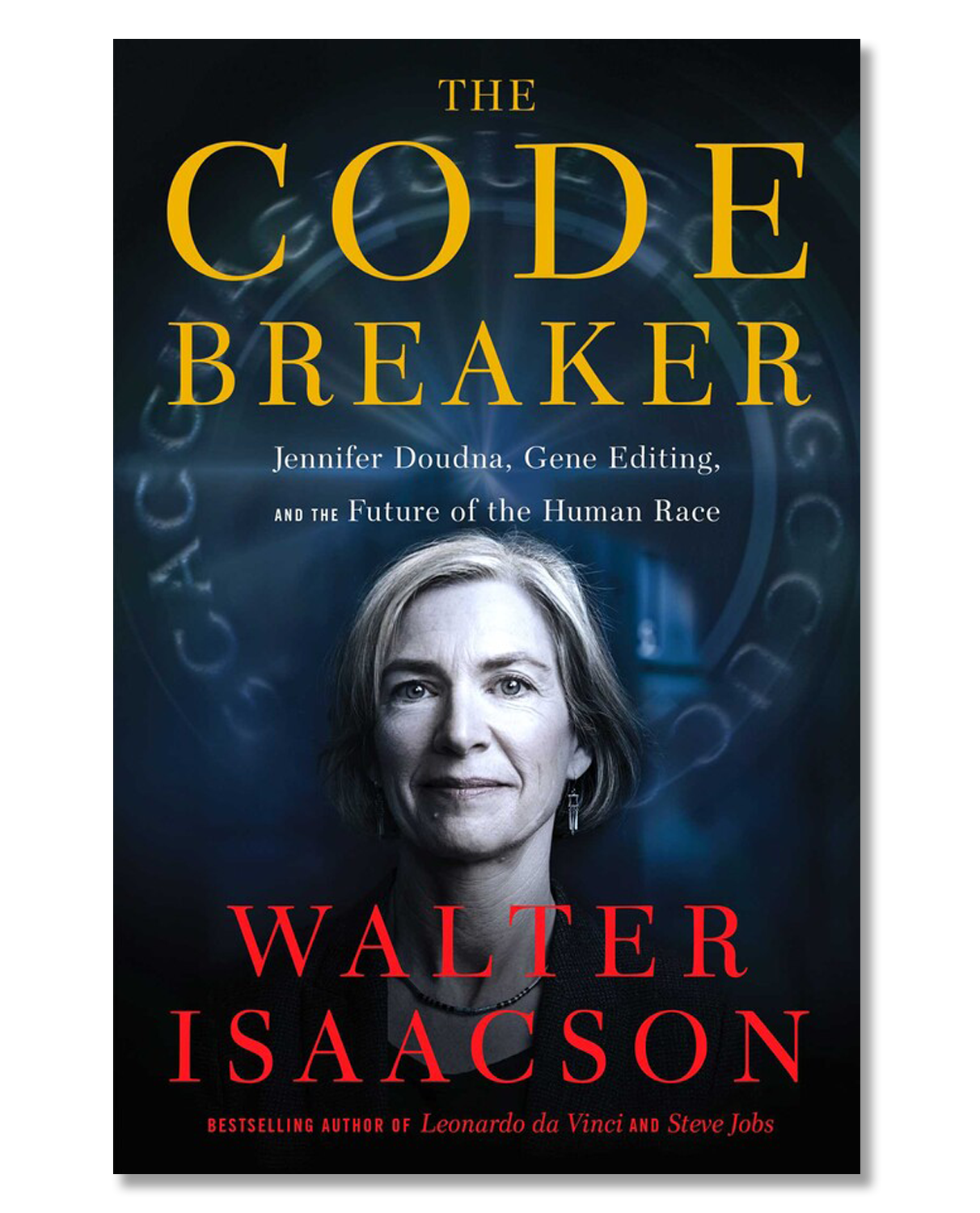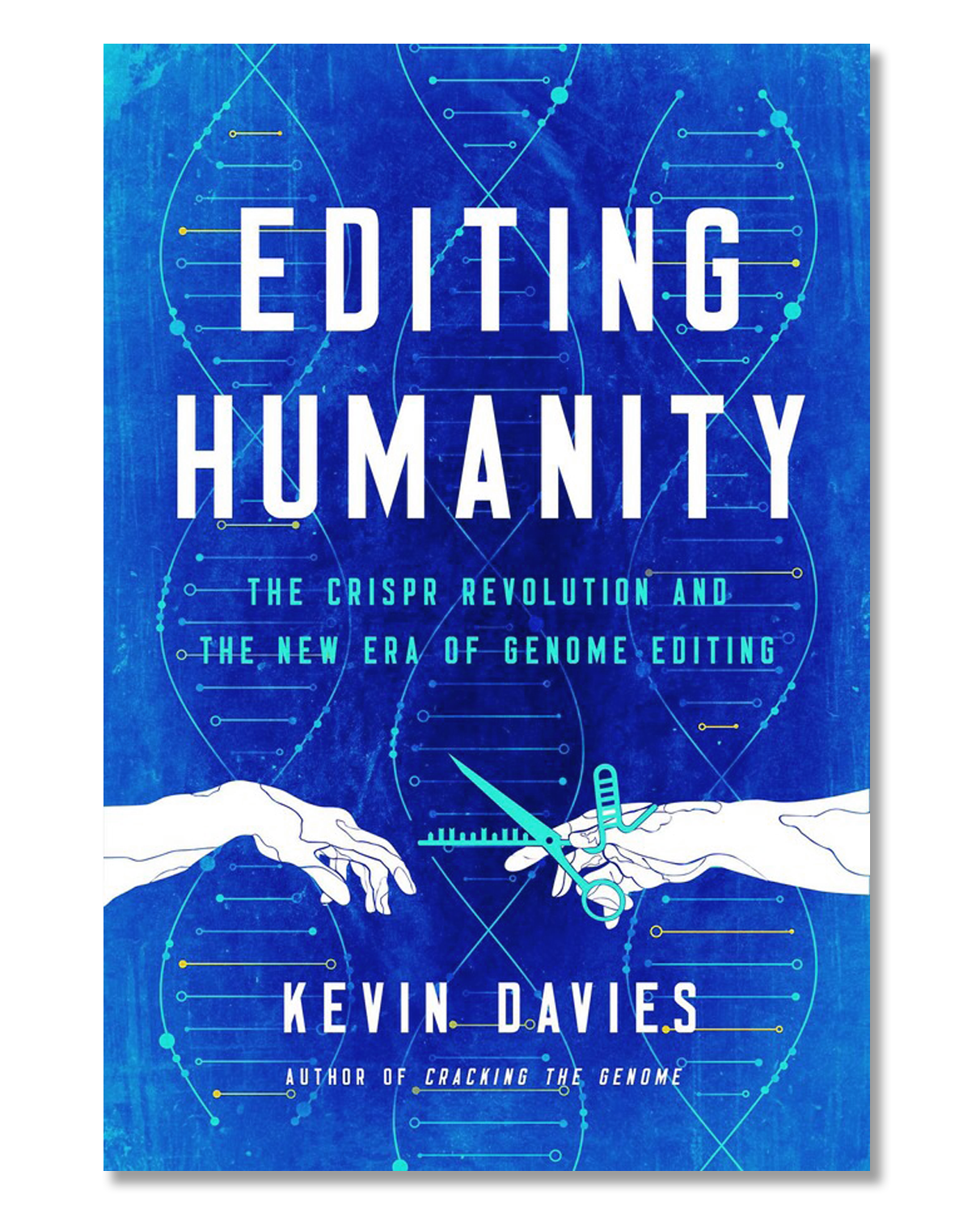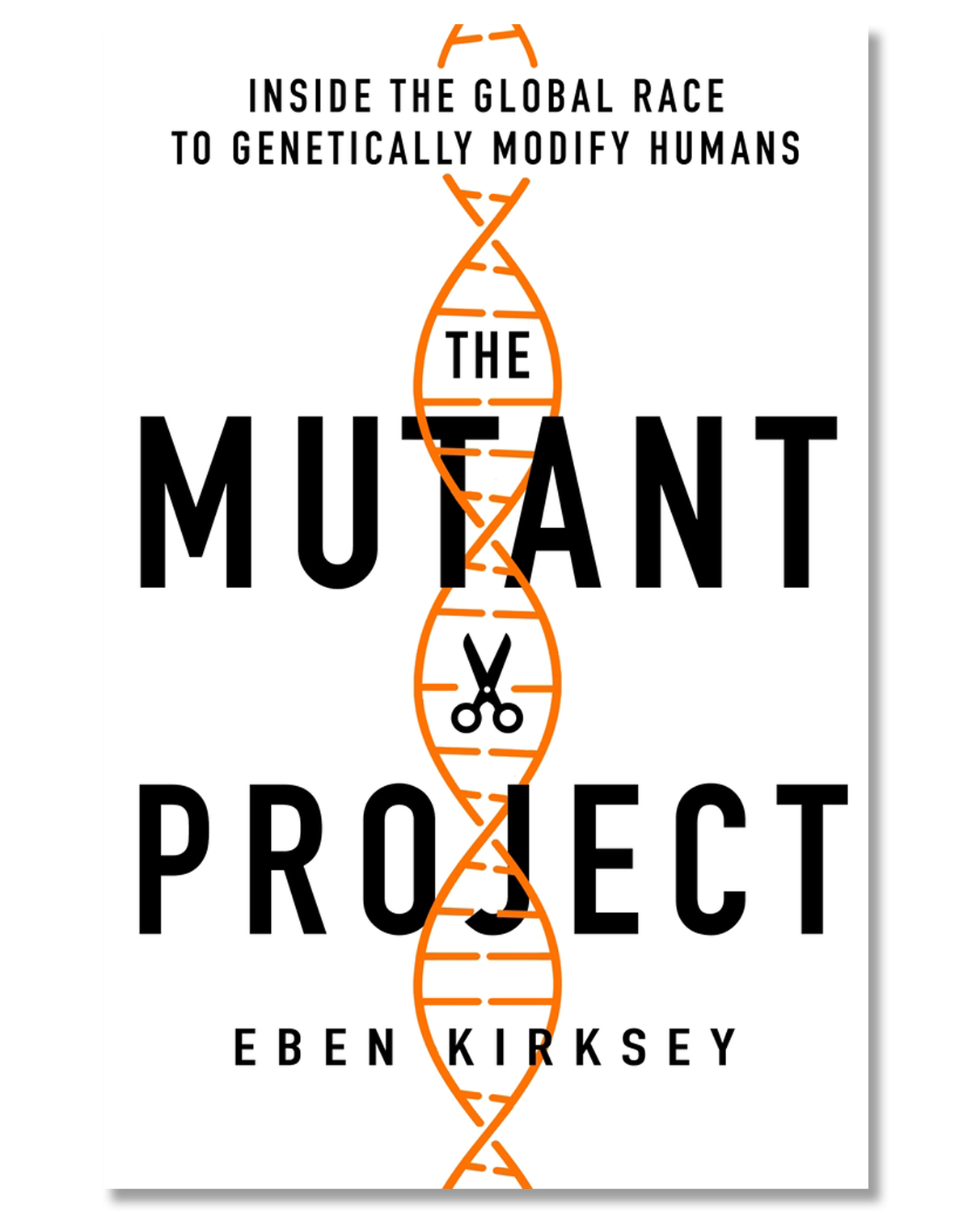Decoding the CRISPR-baby stories
The conventional story of CRISPR genome editing is one of heroic power and promise with an element of peril. That peril became personified when MIT Technology Review’s Antonio Regalado revealed in November 2018 that a young Chinese scientist named He Jiankui was using CRISPR to engineer human embryos. At least three of them became living children. The “CRISPR babies” episode is now an obligatory chapter in any telling of the gene-editing story. When Jennifer Doudna and Emmanuelle Charpentier were awarded the Nobel Prize last year for their invention of CRISPR, virtually every news story also mentioned He. In this century’s grandest story of heroic science, he plays the villain.
Storytelling matters. It shapes not only how the past is remembered, but how the future unfolds.
He Jiankui’s plans were shaped by stories about how science progresses and how heroes are made. One such moment came in a small, closed-door meeting hosted by Doudna at the University of California, Berkeley, in January 2017, to which He was invited. There a senior scientist from an elite American university observed, “Many major breakthroughs are driven by one or a couple of scientists … by cowboy science.”
I too was at that meeting in January 2017, where I met He for the first time. We exchanged notes periodically in the months that followed, but the next time I saw him was at the International Summit on Genome Editing in Hong Kong in 2018, two days after Regalado had forced him to go public before he planned. After the summit, He disappeared from view: he was being held by Chinese authorities in a guest house on his university’s campus.
A month later, he called me, wanting to tell his story. He gave me a detailed history of the CRISPR-babies episode, explaining what motivated his project and the network of people—scientists, entrepreneurs, venture capitalists, and government officials—who supported it. The 2017 Berkeley meeting turned out to have been pivotal, especially the “cowboy science” comment. “That strongly influenced me,” he told me. “You need a person to break the glass.”
After the 2017 meeting, He started reading biographies of scientific risk-takers who were ultimately hailed as heroes, from Edward Jenner, creator of the first vaccine, to Robert Edwards, pioneer of in vitro fertilization (IVF). In January 2019, he wrote to government investigators: “I firmly believe that what I am doing is to promote the progress of human civilization. History will stand on my side.”
Looking back at my notes from the 2017 meeting, I discovered that He had remembered only the first half of that provocative statement. It continued: “What’s going on right now is cowboy science … but that doesn’t mean that’s the best way to proceed … we should take a lesson from our history and do better the next time around.”
Learning from history?
Kevin Davies’s Editing Humanity follows a circuitous path through the remarkably diverse experiments and laboratories where the CRISPR puzzle was pieced together. The story of discovery is gripping, not least because Davies, a geneticist turned editor and writer, skillfully weaves together a wealth of detail in a page-turning narrative. The book gives a textured picture of the intersection of academic science with the business of biotechnology, exploring the enormous competition, conflict, and capital that have surrounded CRISPR’s commercialization.
However, Davies’s book is heavy on the business of gene editing, light on the humanity. The narrative emphasizes the arenas of scientific discovery and technological innovation as though they alone are where the future is made.
Humanity first appears as something more than an object of gene editing in the last line of the book: “CRISPR is moving faster than society can keep up. To where is up to all of us.” Yet most of us are missing from the story. Admittedly, the book’s focus is the gene editors and their tools. But for readers already primed to see science as the driver of progress, and society as recalcitrant and retrograde until it eventually “catches up,” this telling reinforces that consequential myth.

Walter Isaacson’s The Code Breaker cleaves even more closely to scientific laboratories, following the personalities behind the making of CRISPR. The main protagonist of his sprawling book is Doudna, but it also profiles the many other figures, from graduate students to Nobel laureates, whose work intersected with hers. In always admiring and sometimes loving detail, Isaacson narrates the excitement of discovery, the heat of competition, and the rise of scientific celebrity—and, in He’s case, infamy. It is a fascinating story of rivalry and even pettiness, albeit with huge stakes in the form of prizes, patents, profits, and prestige.
Yet for all its detail, the book tells a narrow story. It is a conventional celebration of discovery and invention that sometimes slides into rather breathless celebrity profile (and gossip). Apart from some chapters of Isaacson’s own rather superficial ruminations on “ethics,” his storytelling rehearses clichés more than it invites reflection and learning. Even the portraits of the people feel distorted by his flattering lens.
The one exception is He, who gets a few chapters as an unwelcome interloper. Isaacson makes little effort to understand his origins and motivations. He is a nobody with a “smooth personality and a thirst for fame” who attempts to force his way into an elite club where he has no business being. Disaster ensues.
He’s story ends with a “fair trial” and a prison sentence. Here Isaacson parrots a state media report, unwittingly playing propagandist. The official Chinese story was crafted to conclude the He affair and align Chinese science with the responsible rather than the rogue.
Authorizing narratives
These stories of heroic science take for granted what makes a hero—and a villain. Davies’s account is considerably more careful and nuanced, but it too shifts to casting stones before seeking to understand the sources of failure—where He’s project came from, how a person trained at elite American universities could have believed he would be valorized, not condemned, and how he could get so far without realizing how deep a hole he had dug for himself.

My overwhelming sense from my interviews with He is that far from “going rogue,” he was trying to win a race. His failure lay not in refusing to listen to his scientific elders, but in listening too intently, accepting their encouragement and absorbing things said in the inner spaces of science about where genome editing (and humanity) are headed. Things like: CRISPR will save humanity from the burden of disease and infirmity. Scientific progress will prevail as it has always done when creative and courageous pioneers push boundaries. Genome editing of the germline—embryos, eggs, or sperm that will pass changes down to future generations—is inevitable; the only question is who, when, and where.
He heard—and believed in—the messianic promise of the power to edit. As Davies writes, “If fixing a single letter in the genetic code of a fellow human being isn’t the coveted chalice of salvation, I don’t know what is.”
Indeed, as even Isaacson notes, the National Academies had sent similar signals, leaving the door open to germline engineering for “serious diseases or conditions.” He Jiankui was roundly criticized for making an edit that was “medically unnecessary”—a genetic change he hoped would make babies genetically resistant to HIV. There are, the critics argued, easier and safer ways to avoid transmitting the virus. But he believed that the terrible stigma in China against HIV-positive people made it a justified target. And the Academies left room for that call: “It is important to note that such concepts as ‘reasonable alternatives’ and ‘serious disease or condition’ … are necessarily vague. Different societies will interpret these concepts in the context of their diverse historical, cultural, and social characteristics.”
Science-centric storytelling implies that Science sits outside of society, that it deals primarily with pure arenas of nature and knowledge. But that is a false narrative.
He understood this as an authorization. These are the true origins of his grotesque experiment. The picture of He, and the scientific community he was embedded in, is a rather more ambiguous one than the virtuous science of Isaacson’s telling. Or, rather, it’s a more human one, in which knowledge and technical acumen aren’t necessarily accompanied by wisdom and may instead be colored by ambition, greed, and myopia. Isaacson does the scientists a disservice by presenting them as the makers of the future rather than as people confronting the awesome power of the tools they have created, attempting (and, often, failing) to temper promises of progress with the humility to recognize that they are out of their depth.
Another cost of science-centric storytelling is the way it implies that science sits outside of society, that it deals primarily with the pure arenas of nature and knowledge. But that is a false narrative. For instance, the commercial business of IVF is a crucial part of the story, and yet it receives remarkably little attention in Davies’s and Isaacson’s accounts. In this regard, their books reflect a deficit in the genome-editing debates. Scientific authorities have tended to proceed as though the world is as governable as a laboratory bench, and as if anyone who thinks rationally thinks like them.
Humanity’s stories
These science-centric stories sideline the people in whose name the research is done. Eben Kirksey’s The Mutant Project brings those people into the picture. His book, too, is a tour of the actors at the frontiers of genome editing, but for him those actors also include patients, activists, artists, and scholars who engage with disability and disease as lived experiences and not merely as DNA molecules. In Kirksey’s book, issues of justice are entangled with the way stories are told about how bodies should be—and not be. This wrests questions of progress from the grip of science and technology.

Like Davies, Kirksey uses the He affair to frame his story. A skilled anthropologist, he is at his best when drawing out people’s own stories about what is at stake for them. Some of the most remarkable interviews in the book are with the patients from He Jiankui’s trial, including an HIV-positive medical professional who became more deeply committed to He’s project after he was fired from his job because his HIV status was discovered.
Kirksey’s attention to human beings as more than engineerable bodies, and to the desires that drive the imperative to edit, invites us to recognize the extraordinary peril of reaching into the gene-editing tool kit for salvation.
That peril is too often obscured by hastily spun stories of progress. On the final morning of the genome-editing summit in Hong Kong, less than 24 hours after He had presented his CRISPR-babies experiment, the conference organizing committee issued a statement simultaneously rebuking him and laying a pathway for those who would follow in his footsteps. Behind the statement was a story: one in which technology is racing ahead, and society needs to just accept it—and affirm it. A member of that committee told Kirksey why they had rushed to judgment: “The first person who puts it on paper wins.”
So far, the CRISPR story has been about racing to be the first to write—not just scientific papers, but the nucleotides of the genome and rules for the human future. The rush to write—and win—the future leaves little room for learning from patterns of the past. Stories of technological futures, thrilling though they may be, substitute a thin narrative of progress for the richness and fragility of the human story.
We need to listen to more and better storytellers. Our common future depends upon it.